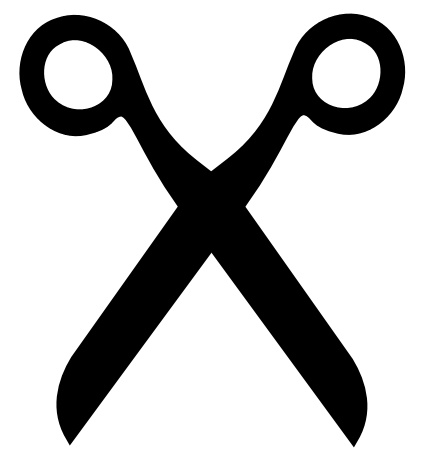Even as it continues the slow and tortured process of a massive buyback of shares from its biggest stakeholder, leading Chinese e-commerce firm Alibaba continues to test the waters for a potential mega-listing of itself, this time by releasing data on group-wide profits that highlight its fast-growth story. Chinese media are quoting a document recently filed with the US securities regulator saying Alibaba Group, 40 percent owned by struggling global search firm Yahoo (Nasdaq: YHOO), posted a profit of $339 million in the 12 months through October 2011, marking an impressive seven-fold increase from the previous 12-month period (Chinese article) The data show that the huge profit jump was clearly the result of Alibaba’s achieving economies of scale, since revenue grew by a much slower but still impressive 80 percent to $2.3 billion. Clearly the big jump in profits didn’t come from its Alibaba.com (HKEx: 1688) B2B marketplace, one of the group’s oldest assets and its only publicly traded one which has seen growth slow sharply in the last year as its business matures and it deals with a fraud scandal. Alibaba is in the process of privatizing Alibaba.com in its effort to downplay that slower growing part of its business and draw more attention to its higher growth units like its Tianmao online mall, formerly known as Taobao Mall, and its AliPay e-payments unit, both of which were probably major contributors to the big jump in profits. Of course people who follow this story will know that Alibaba is trying to buy out the 40 percent stake in the company held by Yahoo, in talks that have dragged on for months now. I’m quite certain that Alibaba is trying to buy back the stake for a price that will give it the highest valuation possible, as it probably plans to turn around and re-sell some or all of that stake at a premium to other investors. The latest disclosure of the group’s fast profit growth, combined with comments from an executive a few weeks ago (previous post), make it look increasingly like Alibaba is seriously considering a listing for the entire group company once it cuts its ties with Yahoo. I’ve previously said such an offering looks like a smart move, as Alibaba is a relatively rare case where its parts are probably worth more together as a package than as individual pieces, as they are all focused on the core e-commerce business and have many synergies. The company is reportedly trying to strike a Yahoo deal that would value it at $32 billion or more, and with these kinds of financials and general market hype created by founder Jack Ma it’s looking like he might actually get that valuation or even higher. He and his team have always hinted they think they should be valued in the same neighborhood as Baidu (Nasdaq: BIDU) and Tencent (HKEx: 700), China’s 2 most valuable Internet companies, now both worth about $48 billion. A group listing would certainly come close to helping him reach that target.
Bottom line: The release of group-level data on Alibaba’s rapid growth is the latest indication the company is weighing a potential listing of the entire group either this year or next.
Related postings 相关文章:
◙ Alibaba.com Privatization: Parent IPO Coming? 阿里巴巴网私有化:母公司或将上市?

 There’s an interesting report in the domestic media saying popular online men’s fashion retailer Masa Maso is planning to slash its advertising budget by half this year, a move that will probably be repeated throughout the industry as many e-commerce firms, most of them losing money, go into cash conservation mode in their struggle to survive. Of course that also bodes poorly for companies that depend heavily on such ad spending for their revenue, from search leader Baidu (Nasdaq: BIDU), which gets nearly all its revenue from advertisers, to web portals like Sina (Nasdaq: SINA) and Sohu (Nasdaq: SOHU) and video and social networking sites likes Youku (NYSE: Youku) and Renren (NYSE: RENN). Let’s look at the report itself, as it does contain some details that show how the situation could play out. It cites a Masa Maso executive saying the company began slashing its ad spending in the second half of last year as part of a strategy to focus more on customer retention, in what looks like a roundabout way of saying it finally realized it had to cut costs and become profitable or risk going bankrupt. (
There’s an interesting report in the domestic media saying popular online men’s fashion retailer Masa Maso is planning to slash its advertising budget by half this year, a move that will probably be repeated throughout the industry as many e-commerce firms, most of them losing money, go into cash conservation mode in their struggle to survive. Of course that also bodes poorly for companies that depend heavily on such ad spending for their revenue, from search leader Baidu (Nasdaq: BIDU), which gets nearly all its revenue from advertisers, to web portals like Sina (Nasdaq: SINA) and Sohu (Nasdaq: SOHU) and video and social networking sites likes Youku (NYSE: Youku) and Renren (NYSE: RENN). Let’s look at the report itself, as it does contain some details that show how the situation could play out. It cites a Masa Maso executive saying the company began slashing its ad spending in the second half of last year as part of a strategy to focus more on customer retention, in what looks like a roundabout way of saying it finally realized it had to cut costs and become profitable or risk going bankrupt. ( I’ll close out the week with a couple of Internet items, starting with a tie-up between home electronics retailer GOME (HKEx: 493) and e-commerce specialist Dangdang (NYSE: DANG), both top firms in their spaces, that has the online world buzzing. The other deal involving a small European acquisition by Internet leader Tencent (HKEx: 700) also looks interesting, mostly because it represents one of the company’s first steps into more developed western markets. Let’s start with the GOME-Dangdang deal, which is still unconfirmed but presumably would see the former move most of its online operations onto the latter’s platform. (
I’ll close out the week with a couple of Internet items, starting with a tie-up between home electronics retailer GOME (HKEx: 493) and e-commerce specialist Dangdang (NYSE: DANG), both top firms in their spaces, that has the online world buzzing. The other deal involving a small European acquisition by Internet leader Tencent (HKEx: 700) also looks interesting, mostly because it represents one of the company’s first steps into more developed western markets. Let’s start with the GOME-Dangdang deal, which is still unconfirmed but presumably would see the former move most of its online operations onto the latter’s platform. ( When is a 3 percent decline in the first trading day for a newly listed company a good thing? The answer is: When you’re debuting into one of the weakest IPO markets for Chinese companies listing overseas since the global financial crisis of 2008. I find it interesting that media reports are calling the Thursday debut for Sunshine Oilsands (HKEx: 2012) weak, after shares of the China-invested Canadian energy firm fell 3 percent on their first trading day as they became the first major Chinese IPO in an overseas market for 2012. (
When is a 3 percent decline in the first trading day for a newly listed company a good thing? The answer is: When you’re debuting into one of the weakest IPO markets for Chinese companies listing overseas since the global financial crisis of 2008. I find it interesting that media reports are calling the Thursday debut for Sunshine Oilsands (HKEx: 2012) weak, after shares of the China-invested Canadian energy firm fell 3 percent on their first trading day as they became the first major Chinese IPO in an overseas market for 2012. ( I’ll start off this Friday with a couple of interesting items on Sino-foreign tie-ups involving financial firms, one involving Piper Jaffray (NYSE: PJC), a boutique US investment bank with a history in China, and the other involving another US firm in a new partnership with UnionPay, China’s dominant electronic transaction specialist. Let’s look at Piper Jaffray first, as that’s the most intriguing of the 2 developments, with shares of the company jumping as much as 10 percent after US media reported it had been approached about a buyout from an unnamed Chinese company. (
I’ll start off this Friday with a couple of interesting items on Sino-foreign tie-ups involving financial firms, one involving Piper Jaffray (NYSE: PJC), a boutique US investment bank with a history in China, and the other involving another US firm in a new partnership with UnionPay, China’s dominant electronic transaction specialist. Let’s look at Piper Jaffray first, as that’s the most intriguing of the 2 developments, with shares of the company jumping as much as 10 percent after US media reported it had been approached about a buyout from an unnamed Chinese company. ( Despite the many clouds dampening prospects for China’s solar firms, Yingli Green Energy (NYSE: YGE) has just come out with a quarterly earnings reports that looks surprisingly optimistic about the year ahead, leading me to wonder if it has been told that China intends to announce some plans for major new solar power plants in 2012. The actual report looks the same as other companies that have already reported their fourth-quarter results, showing sharp drops in both revenue and profit as many firms took big write-offs related to the plunge in prices last year that has driven everyone into the red and forced a number of overseas players into bankruptcy. (
Despite the many clouds dampening prospects for China’s solar firms, Yingli Green Energy (NYSE: YGE) has just come out with a quarterly earnings reports that looks surprisingly optimistic about the year ahead, leading me to wonder if it has been told that China intends to announce some plans for major new solar power plants in 2012. The actual report looks the same as other companies that have already reported their fourth-quarter results, showing sharp drops in both revenue and profit as many firms took big write-offs related to the plunge in prices last year that has driven everyone into the red and forced a number of overseas players into bankruptcy. ( I often write about China’s banks collectively as a group, as there’s little to differentiate them from one another in their home market where they act mostly the same, taking all their orders from Beijing. But it’s a different story on the global stage, where Bank of China (HKEx: 3988; Shanghai: 601988) is making some recent interesting moves to position itself as a key intermediary in China’s growing participation in global commodities markets as its resource firms expand their activities abroad. In the latest move on that front, Bank of China has formed a tie-up with US-based CME, the world’s largest operator of futures markets, according to a domestic media report. (
I often write about China’s banks collectively as a group, as there’s little to differentiate them from one another in their home market where they act mostly the same, taking all their orders from Beijing. But it’s a different story on the global stage, where Bank of China (HKEx: 3988; Shanghai: 601988) is making some recent interesting moves to position itself as a key intermediary in China’s growing participation in global commodities markets as its resource firms expand their activities abroad. In the latest move on that front, Bank of China has formed a tie-up with US-based CME, the world’s largest operator of futures markets, according to a domestic media report. (